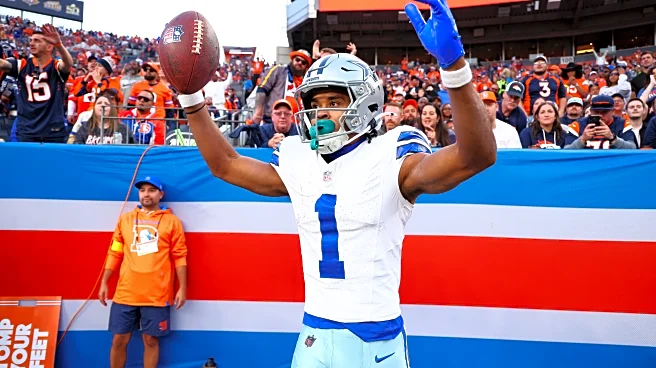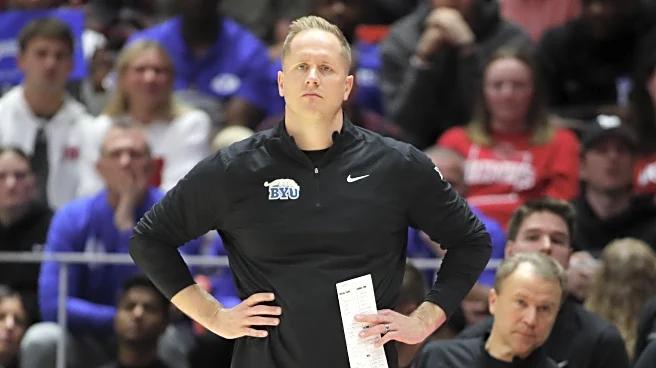What is the story about?
What's Happening?
The Cleveland Browns are facing a challenging season with a 1-5 record, prompting discussions about their future quarterback strategy. Currently, Dillon Gabriel and Shedeur Sanders are on the roster, but neither has proven to be the franchise quarterback the team needs. According to a mock draft by CBS Sports analyst Josh Edwards, the Browns are predicted to select South Carolina quarterback LaNorris Sellers with the sixth overall pick in the 2026 NFL Draft. Sellers is noted for his physical prowess and arm strength, although his decision-making skills are under scrutiny. The Browns are advised to allow Sellers time to develop rather than thrust him into starting duties immediately.
Why It's Important?
The potential selection of LaNorris Sellers could significantly impact the Browns' future, as they seek a reliable quarterback to lead the team. Sellers' development is crucial, given the Browns' history of struggling to nurture young quarterbacks. If successful, Sellers could become a cornerstone for the franchise, offering stability and leadership. This decision also reflects the Browns' strategic approach to rebuilding their team, focusing on long-term growth rather than immediate results. The choice of a rookie quarterback could influence the team's dynamics and performance in upcoming seasons.
What's Next?
If the Browns proceed with drafting Sellers, they will need to carefully manage his development, possibly keeping Gabriel or Sanders as starters until Sellers is ready. The team's management and coaching staff will play a critical role in ensuring Sellers receives the necessary support and training. Additionally, the Browns' draft strategy will be closely watched by fans and analysts, as it could determine the team's trajectory in the coming years. The decision will also impact the team's roster and salary cap considerations.
Beyond the Headlines
The Browns' decision to focus on a rookie quarterback highlights broader trends in the NFL, where teams increasingly prioritize long-term potential over immediate performance. This approach may influence other teams facing similar challenges, encouraging them to invest in developing young talent. The ethical considerations of player development and the pressure on young athletes to perform at high levels are also relevant, as teams balance the need for success with the well-being of their players.
















